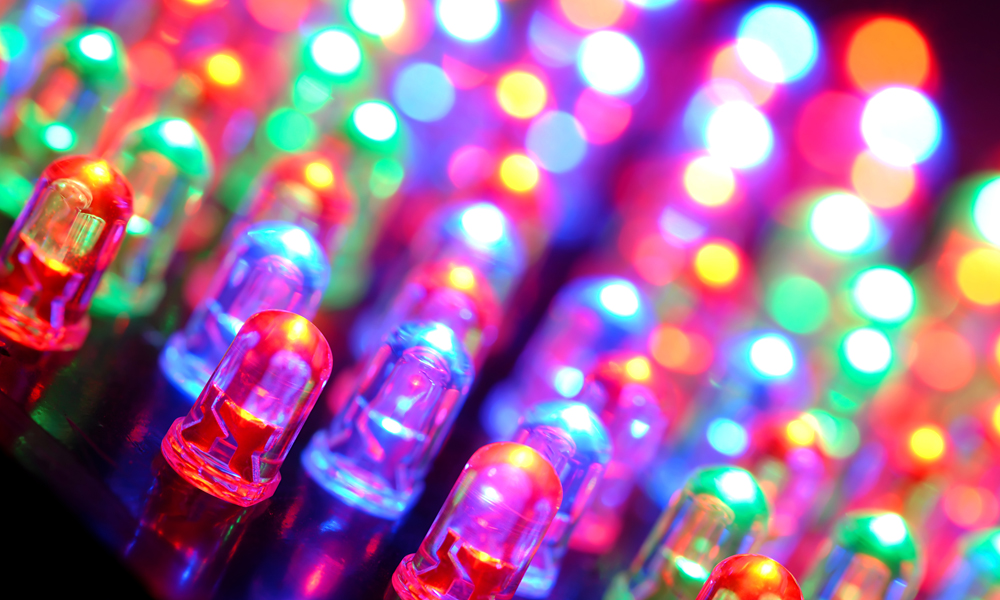WHAT ARE LED SIGNS?
They are known by many different names – electronic message centers, digital displays, reader boards or electronic signs, just to name a few. Whatever you call them, it is our mission to help you feel confident and educated before you buy.
An outdoor digital sign can make a huge impact on your business signage. An LED sign is a technical product, but choosing a manufacturer and sign company partner isn’t a tough task if you do a bit of research first.
Other LED sign manufacturers may try to confuse you with meaningless specifications and complicated jargon. Not us. We prefer to provide you with the knowledge you need to choose the right sign for your project. We want you to feel comfortable talking about our product with your business partners or board of directors. At Wrapall, we call them “programmable LED signs”. Here are a few of the key terms you will hear related to LED signs and why they are important to understand:
LED (Light Emitting Diode)
An LED (light emitting diode) is an efficient, effective and ultra bright alternative to incandescent light bulbs. Unlike traditional light bulbs, LEDs do not burn out because there is no filament. Our EMC’s use only the highest quality single-bin LEDs that are grouped by color value and brightness to ensure uniformity throughout the sign. We also calibrate every XVS model sign and digital billboard for color and brightness to ensure consistent image quality from end to end and long-lasting, vibrant color. Our calibration process configures the whole sign to a level of uniformity that is 50x greater than the human eye can perceive, allowing our signs to age more gracefully. Lower quality LEDs and signs that are not calibrated can begin to show color variations in a “quilted” pattern – sometimes after only a few months of operation.

LED (Light Emitting Diode)
An LED (light emitting diode) is an efficient, effective and ultra bright alternative to incandescent light bulbs. Unlike traditional light bulbs, LEDs do not burn out because there is no filament. Our EMC’s use only the highest quality single-bin LEDs that are grouped by color value and brightness to ensure uniformity throughout the sign. We also calibrate every XVS model sign and digital billboard for color and brightness to ensure consistent image quality from end to end and long-lasting, vibrant color. Our calibration process configures the whole sign to a level of uniformity that is 50x greater than the human eye can perceive, allowing our signs to age more gracefully. Lower quality LEDs and signs that are not calibrated can begin to show color variations in a “quilted” pattern – sometimes after only a few months of operation.
Pixel Pitch
You’ll often hear digital signs referred to by their pixel pitch (e.g. 6mm, 10mm, 19mm). The pixel pitch is effectively the resolution of the sign. The resolution of a sign is dependent upon the distance between each pixel, which is typically comprised of a cluster of three LEDs – one red, one green and one blue. The distance is measured in millimeters and the smaller the pitch, the closer together the LEDs are placed, giving you a tighter resolution with crisper and more life-like images.
Pixel Pitch
You’ll often hear digital signs referred to by their pixel pitch (e.g. 6mm, 10mm, 19mm). The pixel pitch is effectively the resolution of the sign. The resolution of a sign is dependent upon the distance between each pixel, which is typically comprised of a cluster of three LEDs – one red, one green and one blue. The distance is measured in millimeters and the smaller the pitch, the closer together the LEDs are placed, giving you a tighter resolution with crisper and more life-like images.
Matrix
LED signs are often talked about in terms of sign “matrix”. This is simply the number of pixels high by the number of pixels wide your sign will be. Two signs that have the same outside dimensions but are not the same pitch will each have a different matrix. For instance, a 10mm sign that is 4’5” by 8’3” has a matrix of 120 x 240 while a 16mm of the same size has a matrix of 72 x 144.
Viewing Distance
Optimal viewing distance is the point at which the individual pixels begin to blend together to form a smooth, consistent image. Generally speaking, signs with a short distance between each pixel, such as our 6mm models, are best for close viewing distances. Wider pixel spacing, found on our 19mm models, are better for locations where the sign will be installed at a great height or are farther away from traffic
Viewing Angle and Reading Angle
LEDs used in digital signs are generally considered directional light – where the output is pointed horizontally towards the viewer. Because of this, an LED is at full brightness when you look at it straight on, but as you move to the left or right of the LED, the brightness will decrease. The specified viewing angle is the angle at which the LED’s brightness is 50% less than it is when viewed at dead center. All Wrapall models have a horizontal viewing angle of at least 140o, which means that at 70o to the left or right of center, the brightness of the LEDs is half of what it is if viewed straight on.
Vertical viewing angles are calculated in much the same way, although sign louvers have been developed to reduce light spill away from the viewer. Vertical viewing angles are less likely to be equal above and below the LED, since signs are typically viewed from below and are designed to minimize the light that is cast upward.
Reading angle is the angle at which a people can adequately read your LED message, and while typically greater than the viewing angle, it varies depending on lighting circumstances and your sign’s environment.
